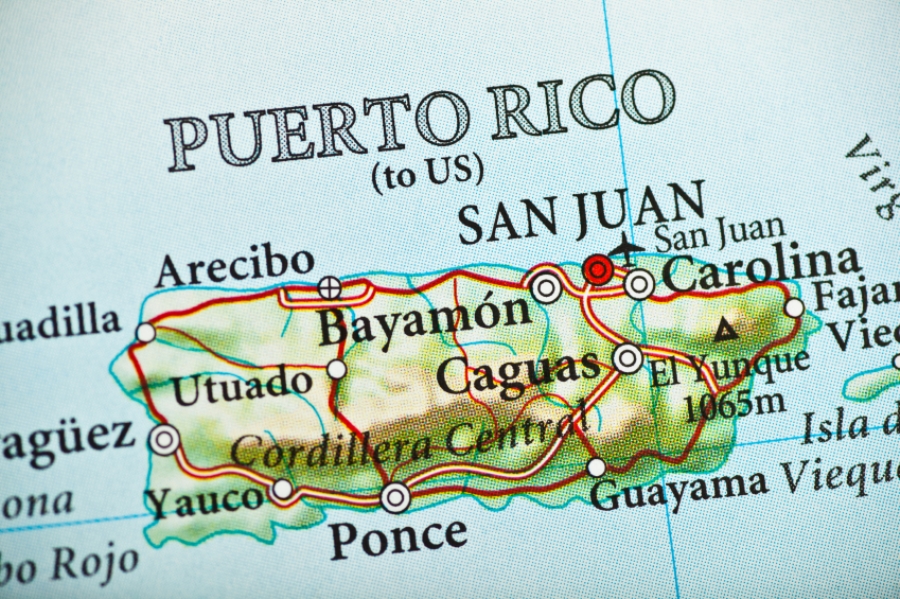A Puerto Rico law that would have forced investors in some public corporations to accept unfavorable restructuring terms was thrown out in a lawsuit brought by holders of power utility bonds.
Investment funds of Franklin Resources Inc. and OppenheimerFunds Inc., which hold more than $1.5 billion in bonds issued by the Puerto Rico Electric Power Authority, convinced a federal judge in San Juan that bankruptcy law and the U.S. Constitution trump the commonwealth's legislation.
The law, passed under threat of a fiscal emergency, would have allowed public utilities such as the power authority, or Prepa, to negotiate with bondholders to reduce their debt loads, potentially forcing investors to accept unfavorable terms, according to the funds' complaint.
(More: Likely default of Puerto Rican utility haunts brokers, muni fund managers)
Investors argued the law would create a process similar to federal bankruptcy protection, and that Puerto Rico “has no power to enact” its own bankruptcy law. Prepa, struggling with $10 billion of debt, was expected by investors to seek restructuring options “imminently,” according to the complaint.
“The debt avoidance law violates federal law and a federal court now has declared it void,” said Matthew McGill, a lawyer for another investor that challenged the law, BlueMountain Capital Management. “We look forward to working with Prepa's stakeholders to develop a sustainable path forward.”
'MAJOR VICTORY'
Amy Caton, a lawyer representing the Franklin and Oppenheimer funds, said in a statement that the decision was “a major victory for municipal bondholders.”
“We are greatly appreciative of the judge's thoughtful decision,” she said.
Puerto Rico officials “will be reviewing all the aspects of the ruling,” Secretary of Justice Cesar Miranda said in a statement Saturday.
“In due time and after careful examination, we will decide on a course of action,” he said.
Bondholders have been speculating for months that a Puerto Rico agency would default. Prepa, which used its capital budget to buy fuel within the past year, has $8.6 billion of bonds, with about 70% not covered by bond insurance, according to data compiled by Bloomberg.
Puerto Rico's economy has struggled to grow since 2006 and its 13.7% unemployment rate is more than double the U.S. average. Yet the commonwealth and its agencies have found it easy to sell bonds to investors to plug deficits.
DISTRESSED LEVELS
A restructuring decision would be felt in all corners of the U.S., as the commonwealth's securities are tax-free nationwide and widely held by mutual funds that invest in the municipal market. The commonwealth and its agencies owe $73 billion, with about 54% of U.S. municipal mutual funds holding the securities, according to Morningstar Inc.
Debt sold in Puerto Rico has been trading at distressed levels since August 2013 on concerns that the island of 3.5 million wouldn't repay its obligations.
After Puerto Rico lawmakers approved the bill in June, prices of Prepa bonds maturing within four years fell by as much as 40%, the investment firms stated in the court filing.
The Franklin funds have $693 million of Prepa debt, and Oppenheimer entities hold $866 million, according to the ruling.
U.S. District Judge Francisco A. Besosa agreed with the investors' contentions that the new law would take away protections provided under the federal bankruptcy code, and that it is in “irreconcilable conflict” with the federal law. Investors argument that it violates the contract clause of the Constitution is also plausible, the judge said.
“The court has no reason to doubt that the commonwealth enacted the recovery act to address Puerto Rico's current state of fiscal emergency,” Mr. Besosa said. “But even when acting to serve an important government purpose, the commonwealth can impair contractual relationships only through reasonable and necessary measures.”
The commonwealth had argued that enacting the law was a “valid exercise” of its power, and was necessary because Puerto Rico's public corporations aren't eligible to seek restructuring under Chapter 9 or Chapter 11 of the federal bankruptcy code.
Puerto Rico Resident Commissioner Pedro Pierluisi, the island's representative in Congress, said in a statement that “it is more clear than ever” that Puerto Rico should be included in the bankruptcy code. He said he intends to reintroduce a bill to that effect.
“This would empower the Puerto Rico government to authorize an insolvent government-owned corporation to adjust its debts in federally supervised proceedings, just as every U.S. state is empowered to do,” he said.







